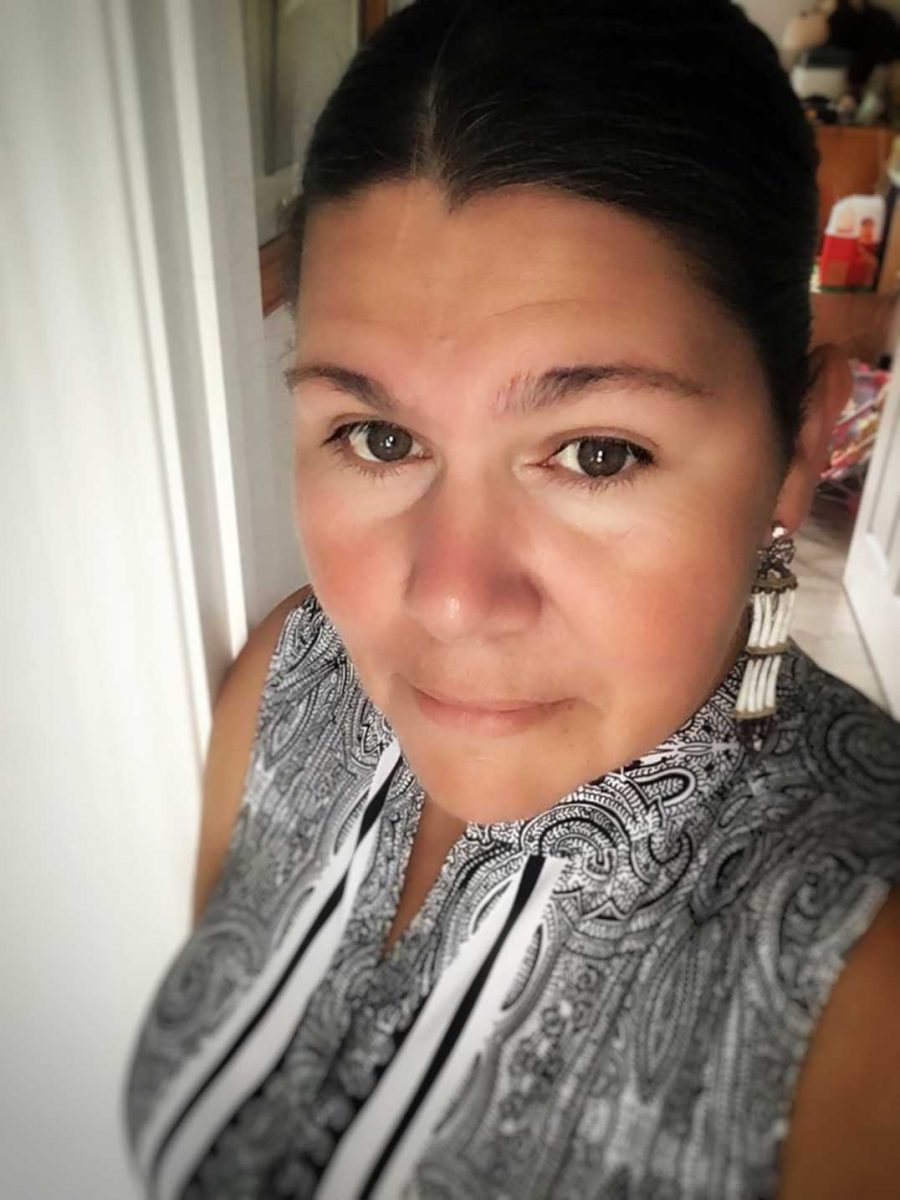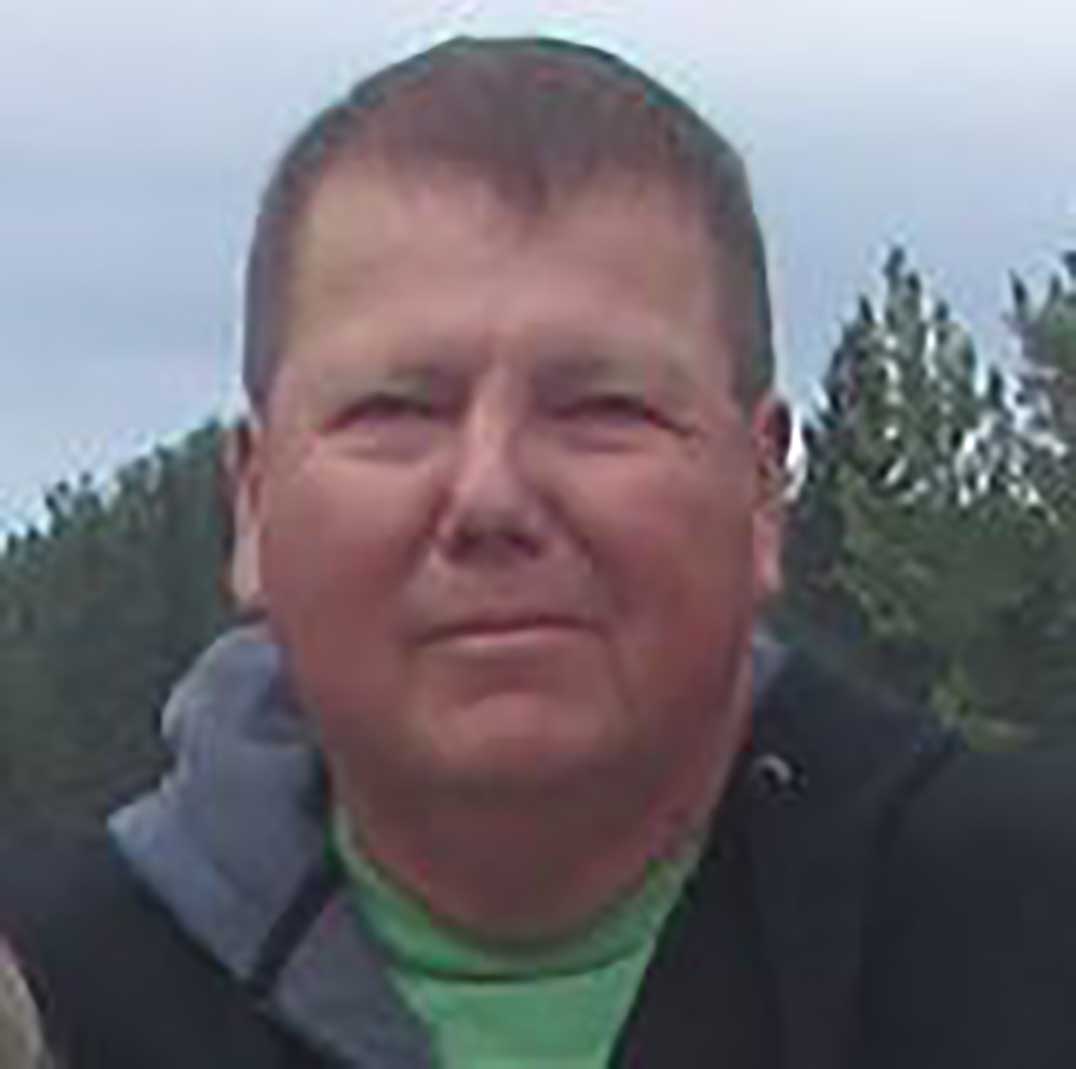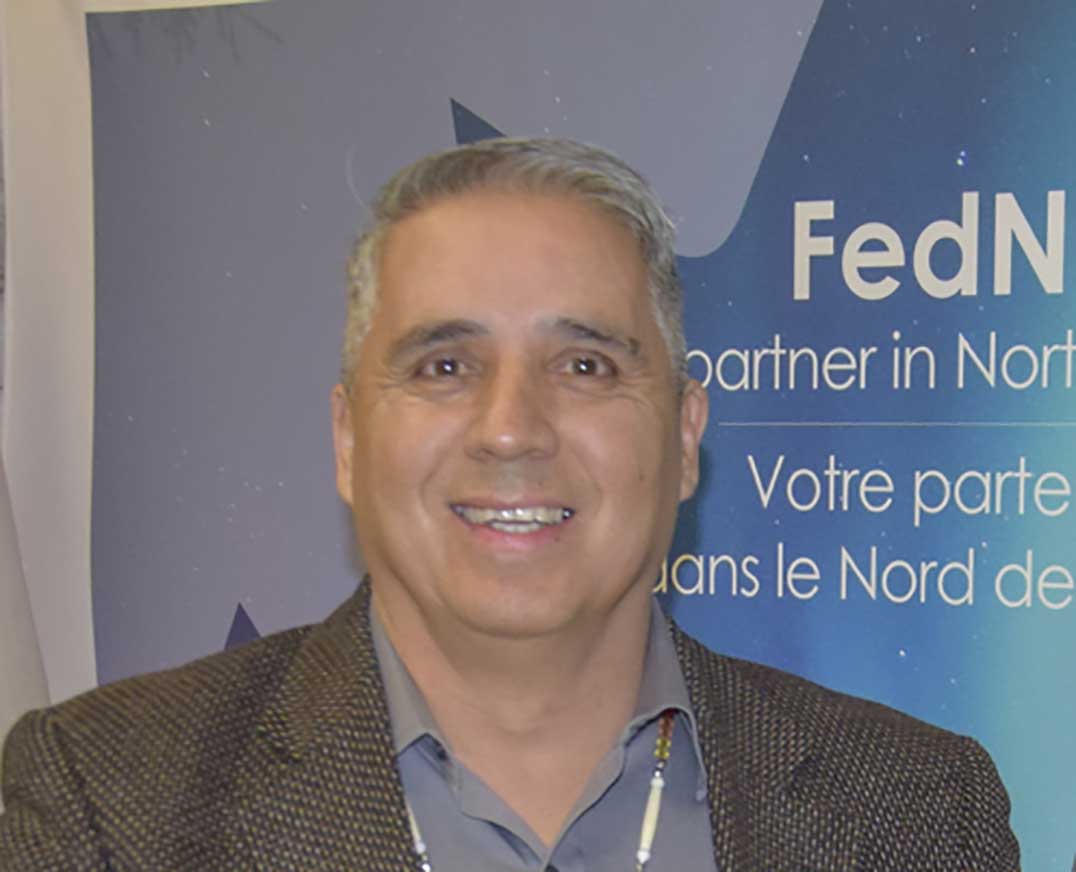BIRCH ISLAND—Voting is now open for the Whitefish River First Nation (WRFN) chief and council elections.
Band members have until 5 pm on Saturday, February 9 to cast a vote online. Mail-in ballots are also available for eligible voters who live off-reserve; these individuals should have already received a voting package. There will be a regular, in-person poll at the WRFN Community Centre from 8 am to 8 pm on Saturday, February 9.
Online votes can be cast at OneFeather.ca/Nations/WhitefishRiver where a full list of candidates and a notice of election can be read. This is the first election to be held under WRFN’s new election code that passed in September 2018. Part of the changes include a shift from a two-year term to a four-year term, similar to municipalities.
There are 26 candidates for the seven spots on council, one more spot than the current council. The candidates are: Anastasia (Stacey) Cywink, Nicholas Francis, Candice Jacko (Assiniwe), Gail Marie Jacko, Sandy Jacko, Anita Ruth McGregor, Brian McGregor, Cara (Caralyn) McGregor (incumbent), Francis Eugene McGregor, Leslie Florence McGregor, Lynn Marie McGregor, Murray McGregor Jr., Todd McGregor, Valarie McGregor, Beverly Nahwegahbow, Leona Nahwegahbow (incumbent), Esther Osche (incumbent), Gail (Kiki) Pelletier, L. (Bird) Pitawanakwat, John Recollet, Dave Shawanda (incumbent), Jacinta Maria Shawanda, Mark Hilary Shawanda (incumbent), Martha (Marti) Shawanda, Marilyn Stevens and Murray Still.
There are four candidates for chief. The candidates are: Carianne L. Agawa, Rose Jacko, Donald McGregor and Franklin (Shining Turtle) Paibomsai (incumbent).
The following are profiles of the candidates and their platforms.

Carrianne Agawa
WRFN chief candidate
“Empowering our people through sustainability”
“I believe in sustainability via the land and equity, which is totally different from equality—equity means providing supports to needing individuals to make things equal,” says Whitefish River First Nation (WRFN) chief candidate Carrianne Agawa.
“Sustainability through the land is so important because we have a huge land base. We should be finding opportunities to utilize the land more such as greenhouses. These could be used year-round to produce which we could sell at a discount to our band members and also sell to others,” says Ms. Agawa.
“We need to be using the land in a sustainable way to create jobs that will last a long time. It’s not just about creating infrastructure but also jobs that are tied back to the community at large.”
Part of the economic benefits through making use of the land could come from increasingly popular sources such as ecotourism.
“We have numerous lakes beside us and we could create trails through the area. In Pic River, they worked with people from [Wiikwemkoong] who had experience to create their trails,” Ms. Agawa says.
Looking within the government, Ms. Agawa says accountability and transparency are most important and WRFN needs more of both.
“We need to reach out to our off-reserve members more and use our capacity more than we are now in the community. There are many people with specific skills and education who we could hire instead of off-reserve people who don’t know as much about our community,” she says.
Ms. Agawa is the owner of Maadjitawin Counseling & Consulting, an organization that offers workshops in areas such as mental health, motivation and empowerment; business services such as report writing and program development; life skills and personal wellness coaching and fitness instruction.
She holds a master’s in education and an honours degree in psychology. Ms. Agawa has served on many boards and within numerous organizations. She was a member of the Local Health Integration Network in Thunder Bay, the First Nations School board in Toronto, the Waabanong Head Start board as its vice-president, the Shingwauk Student Association during university and others.
“I have the political knowledge, education and management skills to do the job. Don’t vote for me just because we’re cousins, I’ve said that before. Do vote for me if you want change.”
For Ms. Agawa, more women running for chief is one aspect of broader change that should happen within Indigenous communities.
“It’s important to note we’re in our current climate. Women need more of a voice. We need to get rid of oppressive colonial ideas about Indigenous women and open the doors so people see and understand that our voices can lead to change,” Ms. Agawa says.
“We need to get back to that place where men and women could both work together to make change. Vote for me because you believe I can create the change and go back to the balance.”

Rose Jacko
WRFN chief candidate
“Every hand makes a difference”
“I believe having equal opportunities and voices at the table is important. We need to have a unified community and be able to bring issues forward,” says Rose Jacko, Whitefish River First Nation (WRFN) chief candidate.
Ms. Jacko is the Indigenous Co-ordinator of the Northeast Cancer Centre Supportive Care program at Health Sciences North. As part of this role, she helps support and advocate for Indigenous people at local and regional committees. Her work in the mental health and addictions fields has given her experience in compassionate care initiatives.
She is also completing her master’s of Indigenous relations at Laurentian University and holds an honours bachelor’s degree from the same school in the Indigenous social work program.
Ms. Jacko says holding a public position requires a good heart and mind to listen and respond in a positive way.
“I believe in integrity. There are opportunities for openness within our office and in our administration. We should be able to network and be able to create the atmosphere that is missing right now.”
An issue of importance for Ms. Jacko is taking care of community members from all ages.
“I’ve been visiting people and have heard that our aging population is an important issue. Our elders feel they have been missed. I would like to bring in a geriatric social worker and host more programs and services for elders,” she says.
“I would also like to see a transition home for our youth and adults. Many of our youth and adults are couch surfing and we could start by looking at how these issues have been addressed in other communities. [Aundeck Omni Kaning] has a similar program and [Wiikwemkoong] is building a homeless shelter.”
Ms. Jacko adds that programs like the above are important to the overall health of WRFN.
“Community wellness encompasses childhood to adulthood. If people are not meeting their physical, mental, spiritual and emotional wellness needs, they will be unable to live up to their full capacity,” she says.
Compassion and approachability are two important qualities Ms. Jacko says she will bring to this position.
“You need to listen and have the time for people to share their world views, and seeing and hearing their perspectives and helping them,” she says. “You can help them see things in a different light. It’s important to have compassion for the individual; you don’t know what a person has been through.”
Ms. Jacko has previously served on the board and committees at Kina Gbezhgomi Child and Family Services, after the WRFN administration asked her to be its board representative.
For Ms. Jacko, bettering the community is an important task and one that comes from within.
“We want to build capacity and empower our own people in our community. We have well-educated people who can come back and teach, giving us educational awareness. We can build from the inside out because we know what the community needs,” she says.
“For community engagement and building capacity, this work cannot be done alone. We need the value of the community to help through committees and councils to direct the chief.”
Ms. Jacko says keeping all community members involved is crucial to moving WRFN forward in a positive way.
“Every hand makes a difference. Our people need to be reminded of that. Their vision will help with creating the strategic and comprehensive plan we need,” she says.

Don McGregor
WRFN chief candidate
“Working together is success”
“I love my community and believe there’s a huge potential with business opportunities. We’ve made several very good attempts at getting involved in different economic activities, but we need something more,” says Don McGregor, Whitefish River First Nation (WRFN) chief candidate.
Mr. McGregor has 30 years of experience in management and administration. He started working for a lobbying group in Toronto in 1989 and stayed there for many years managing its capital program. Since then he has been the executive director of WRFN and Wahnapitae First Nation and worked for Kenjgewin Teg as its business development officer. He worked for the Ojibwe Cultural Foundation for five years as its program advisor and is currently the housing director in Sheguiandah First Nation.
“I have a good background in management, administration and several areas related to developing opportunities and building capacity. I’ve always been about that,” he says.
Mr. McGregor served on WRFN council a few terms ago and has served on the Union of Ontario Indians governance working group. He has also been a juror on the Ontario Arts Council for several years to help artists and craftspeople move forward.
Mr. McGregor says creating an environment from which new businesses and economic opportunities can grow is important.
“Our community members need to have more access and more investment in terms of the opportunities they have available. There are a number of individuals who want to move forward with developing businesses but the environment right now for entrepreneurship is a struggle,” he says.
“I would like to see the community become more self-sustaining and provide an atmosphere that provides opportunities for that,” says Mr. McGregor.
He says he believes in transparency, accountability and open dialogue among both the community and its leaders, and that WRFN should be planning for the future to better handle problems that may arise going forward.
“I believe our community and our leadership needs to be open and absolutely transparent to decisions being made. We need to ensure our members are more engaged as opposed to always fighting things. Instead of reactionary, we should be more proactive.”
Having a connection between the community and issues across Canada and the world is important to Mr. McGregor.
“We should be more aware and make sure our leaders—not only the chief but all of council—are aware of all matters, not just what matters right now and being aware of what happens across the country. We should be becoming more involved in movements as opposed to just reading about them and not doing anything,” says Mr. McGregor.
An important issue he says he would like to see resolved is the ongoing boundary claim.
“This has been in the works for many years. There’s been lots of good work done by the current administration, but we need to speed it up. I know the committee members want to get it resolved and that’s one of the most immediate things we need to look at.”
Mr. McGregor has travelled and worked across the province and says he has gained a great deal of experience that he will use in this position.
“I believe in the values I hold. I’m honest, I’m respectful and I certainly bring a vast amount of experience and knowledge to the community,” says Mr. McGregor.
“Coming together is the beginning, staying together is progress, working together is success.”

Shining Turtle (Franklin Paibomsai)
WRFN chief candidate
“Experience and effectiveness”
Incumbent Whitefish River First Nation Chief Shining Turtle (Franklin Paibomsai) is running for re-election on a platform of experience and effectiveness. He pointed to the $40 million in infrastructure funding that has flowed into the community since he was first elected, but he noted that was just one leg of the table.
“Infrastructure is the part that you can see and touch, it’s tangible,” said the former engineer who stepped away from his lucrative career to offer his services following his first being elected to the leadership of his community. “But there is so much more that doesn’t lend itself in the same way.”
“My focus is on wellness and there is still so much work to do,” he said, pointing in example to the community discussions on the legalization of cannabis and how that will fit into the community’s values. “We need to tackle that issue in a coordinated and constructive environment. Strip away the emotion behind those in support and against and find a way forward that does no harm.”
Chief Shining Turtle pointed to the residual issues that linger from the residential schools, the Indian Day Schools (there was one in the community from 1884 until 1973, he pointed out) and the 60s Scoop, along with the long tradition of Children’s Aid Society apprehension of children from Indigenous families. “We need to get working on these things that have happened in our community,” he said. “They manifest as challenges we see in the community.”
Another key concern he has is the ongoing challenge of communication. “We have a lot of communication routes in our community,” he said. “I am always championing the work we have with our community newspaper ‘The Rezound’ where I have been reporting to the community throughout my tenure. But there are bottlenecks and we need to deal with that. In my walking around the community I keep meeting people who tell me they don’t get The Rezound. It’s frustrating, but we need to find ways of enhancing communication.”
One of the ideas he is proposing is to have a biannual community meeting where the administration will report progress to the community members.
“Our three core priorities that we have reported on include: wellness, education and economy. Day to day our administration has been extremely busy with monthly programs and services and we have reported much of this using The Rezound, community mailouts and our WRFN social media tools.”
A summary of all of the chief and council’s efforts provided by Shining Turtle include: negotiations on WRFN’s specific claim with Canada and Ontario; a successful vote to adopt the Anishinabek Education System (AES); successful vote on the WRFN Election Code; community input to finalize the trust document for a vote; many consultations with citizens on issues like the AES, trust, elections, and cannabis; community communication using Rezound, webcasts, social media and website; live streaming council meetings and community events; building community spirit with the Little NHL, Earth Day, Bobcat Run, Aboriginal Day, etc.; design and project funding towards a new elders’ housing project; issued a walleye harvest moratorium at Whitefish Falls during peak of spawn; updating the Matrimonial Real Property law to include policy provisions; lobby efforts in Ottawa and Toronto for WRFN’s water and daycare projects; developed and implemented the burial policy; recreational cannabis moratorium; adhering to the 20-year capital planning study approved by the band in 2015; working with WRFN’s own child welfare model through Kina; a new $3.5 million elevated storage reservoir to meet growing needs; a new $1.3 million daycare being added to Shawanosowe School; a $250,000 housing renovation program for exterior stairs, steps and landings; a $30,000 renovation to the community fitness centre; a $90,000 renovation to the library; advancing the water declaration—BCR 3600; advancing treaty and inherent rights with Canada and Ontario; supporting investments in post-secondary education for student success; supporting youth with investments in education and recreation activities; traditional ceremonies every quarter over the last two years; and updated our human resource policy and organization structure.”
Chief Shining Turtle said that the position of chief is challenging and humbling and an opportunity to serve the community that he has been honoured to have been entrusted.




